“Its strange, people must think we are a bit weird, getting up and losing three or four pounds and then feeling normal”: Tom Marquand on jockey pressures
Once you’re confined into the claustrophobic starting stalls, flight mode is activated. The horse’s breath steams the air as the racecourse anxiously awaits. The jockeys look ahead onto the runway, holding on before takeoff. Once the gates explode open, the eruption of noise from the crowd takes over and 14 jockeys depart, being propelled forward on a 40mph short haul flight to the finish line.
Successful flat jockey Tom Marquand was fourth in the flat championship this year, with over 130 wins to his name. His journey began in pony racing and he attended the British Racing School in 2012. At the age of 17 he exploded onto the racing scene taking the apprentice title during his first season in 2015 and his career and development has grown ever since.
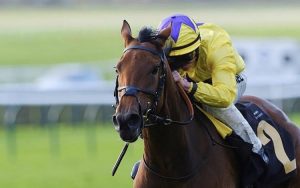
But there is a lot more to the sport than the 30 second race that you see. There is relentless training, care and effort that goes into preparing these horses and jockeys for the racecourse. And of course, a lot of sadness when unfortunate incidents do happen.
Being a jockey is more than just being straddled on the top of a horse. Jockeys maintain a supreme level of fitness to keep up with their daily routine of riding, with huge life risks and pressures that cannot be seen from the grandstands. In flat racing, there is one fall in every 240 rides and 40% of these falls resulting in jockey injury, with jump racing being 20 times more dangerous. Many say that jockeys are amongst the fittest athletes in the world. Marquand sheds light on the training he completes on a weekly basis:
“In the summer I ride out pretty much five or six mornings a week and after doing that I would go to the gym or go for a run and have a sweat to lose the weight I have to for that day. I try to work quite hard on it all year round just because I know it helps keep weight and definitely helps my riding as well.”
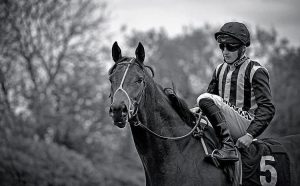
Horse racing carries an emphasis on weight with jockeys having to weigh in and out before every race. This is to ensure they, their kit and the saddle are the correct weight. If the jockey is lighter than the weight restriction, the horse has to carry the weight with thin lead weights on the saddle.
“This year I have definitely got heavier but I am at that age now, 21, where hopefully I’ll stop growing. It’s made it a bit trickier but my bottom weight is still 8st 7lbs and I can do that and still feel good,” said Marquand.
Marquand can ride up to 145 horses a month in peak season, travelling to multiple racecourses in a day and also abroad. However, travelling can take its toll, both physically and mentally and can be a critical time for reflection after a long day at work.
“When flying out to Qatar I fly out the Wednesday evening for the Thursday racing, and then fly straight back after the racing on the Thursday night, getting back Friday morning. But I always find going abroad is more tiring even though you’re doing less. I think you only realise how tired you are when you stop,” said the 21-year-old.
“I got a really good sponsor, Markel, at the start of last year and they gave me quite a nice car which has made travelling a lot easier. I am lucky I have got them,” he added.
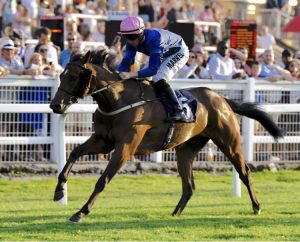
Credit: Francesca Altoft
Racing welfare, as part of the British Horseracing Authority (BHA), work to provide support with financial aspects, mental health and support after injury. The mental stamina of this industry is a harsh reality and the pressures can be detrimental for the jockeys health especially when time off and rest isn’t factored in.
“I don’t really get any downtime, we went on holiday a couple of weeks ago for eight days and we get another four days off in March but that’s about it. It’s about 12 days. It’s really full on,” said Marquand.
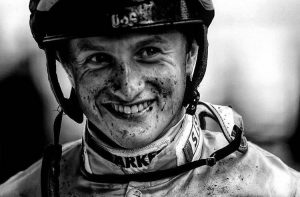
Racing is high risk sport with the jockeys life resting in the reins of the horse. United as a team, the win is a split effort between them both and is more than a working relationship. The danger factor that hangs on them creates a remarkable layer of respect for each other. You’re both exposed, front stage, to an audience full of expectation from racing enthusiasts, owners, trainers and stable crew.
“It’s all part and parcel of the job. I mean touch wood I really have been so lucky, I think I’ve had just over 4000 rides and I’ve not had a proper fall in a race at speed, I’ve had a couple in the stalls do stuff but not a bad fall. It’s something that is always going to happen and it is not nice. People are bothered about it, but it’s not really something that anyone talks about,” Marquand told the Sports Gazette.
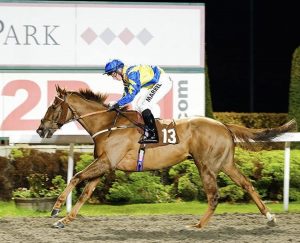
Credit: John Hoy
For the pair, there is no way of talking tactics in the stable before the race. But horses can pick up on human feelings, so it’s compulsory to be in the right frame of mind. Marquand’s strategies mirror how different the sport is compared to others, with losing weight being his approach to sports psychology.
“Not really –[It’s] just sweating!”
“If I didn’t ride out in the morning, riding my first one I’d feel really odd, like it doesn’t feel right. Whereas if I wake up and sweat, go to the gym, that puts me right for the day. I suppose it’s just routine and habit. Its strange people must think we are a bit weird, getting up and losing three or four pounds and then feeling normal!” Marquand says.
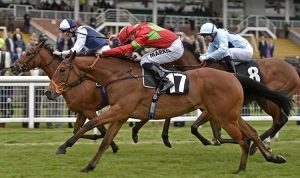
As he reaches the end of a very successful year, Marquand looks ahead to 2020.
“This year I wanted to finish at the top five of the championship and I ended up fourth which is class as I have had almost two months less of riding. I have 130 this year, I didn’t quite think that would happen so next year if I manage to equal this year I’d be pretty happy with that,” said Marquand.
Marquand is up next in Qatar on Friday 19th December and then back for Lingfield on Saturday. Best of luck Tom!